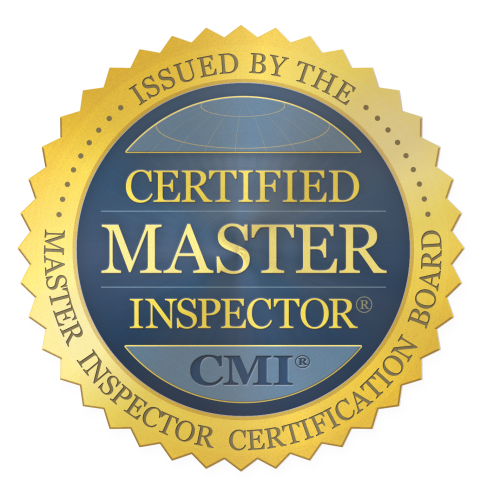Where Should I Put A Carbon Monoxide Detector?
That title is a question I get a lot during home inspections. And this one -
Is carbon monoxide lighter or heavier than air?
Of course, any time you have gas appliances or a wood-burning fireplace, you should have at least one carbon monoxide (CO) detector in the home.
CO is odorless, tasteless and does DOES NOT GIVE WARNING that it is being produced or building up.
And, is it lighter or heavier than air? Which means, does it rise or fall when produced?
Since the molecular weights of gases differ, what makes them move is convection. If a gas is released because of combustion, it would tend to rise due to its heat.
CARBON MONOXIDE HAS NEARLY THE DENSITY OF AIR. CO is slightly lighter. You can figure this out. For example:
O=16 C=12 N=14 H=2
You would add things to get the pure density of gasses.
H2 = 1+1 = 2 (very light)
O2 = 16+16 = 32 (slightly heavy)
N2 = 14+14 = 28 (about neutral)
CO2 = 12+16+16 = 44 (heavy)
CO = 12+16 = 28 (about neutral)
H2O = 1+1+16 = 18 (light) - as in humidity or steam
Radon = 222 (very heavy)
So what is the density of air? The air we breathe is composed of 80% Nitrogen, 19% Oxygen, .6% inert gases and .4% Carbon Dioxide.
N2 + O2 + CO2 = ?
.8(28) + .196(32) + .004(44) = 28.9 (by definition air is neutral)
So how does CO compare with air? It is 3% lighter. So it distributes very easily through a house.
But when CO is produced, it immediately begins mixing, and therefore diluting, with the air around it. Therefore, it mixes with nitrogen, which doesn't burn, oxygen, which is burned creating the CO, H2O (humidity) and CO2, which are all in the air. So, since the CO produced is very diluted in the air, it is not in pure form. And as the CO is produced, it is necessarily warmer than the air around it.
So where is the most advantageous place to put a CO detector? CO moves with the air, so where the air is flowing it will go also. It is very unpredictable where the air, and therefore CO, will move at any given time. That is why the instructions with the unit you buy do not say to place it high or low on the wall.
Understanding all that, the National Fire Protection Association (NFPA) suggests in 720, 2-1.1.2* 1998 -
 "A carbon monoxide alarm or detector should be centrally located outside of each separated sleeping area in the immediate vicinity of the bedrooms. Where bedrooms are separated and the audibility of the alarm or detector to occupants within the bedroom area could be seriously impaired, more than one unit could be needed. Each alarm or detector should be located on the wall, ceiling, or other location as specified in the installation instructions that accompany the unit."Which detector should you buy?
"A carbon monoxide alarm or detector should be centrally located outside of each separated sleeping area in the immediate vicinity of the bedrooms. Where bedrooms are separated and the audibility of the alarm or detector to occupants within the bedroom area could be seriously impaired, more than one unit could be needed. Each alarm or detector should be located on the wall, ceiling, or other location as specified in the installation instructions that accompany the unit."Which detector should you buy?
The suggestion is one that is plugged in and preferably with a battery back up. These detectors use electrochemical technology to detect CO gas. Like smoke detectors, they are effective for 10 years.
A local Fire Marshall, my neighbor, told me that the plug-in detectors seem to have a better record for fewer false positives than do the battery-only CO detectors. But that is his experience!
Two highly rated and popular CO detectors are here and here. They are each highly popular, and have battery backups.
Each of those links send you to plug-in CO detectors which have battery back ups and are well regarded by fire departments.
My recommendation: buy a good plug-in detector! If you want, get one with a battery back up. Put it near any potential CO source and another near your bedroom(s). Each of those links send you to plug-in CO detectors which have battery back ups and are highly rated.
And you will be safe and feel safe.
Ps. Since this was written many of the combination smoke/carbon monoxide detectors have been recalled. It is probably best to not use them if you are not sure.

Comments
Post new comment